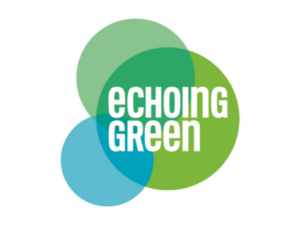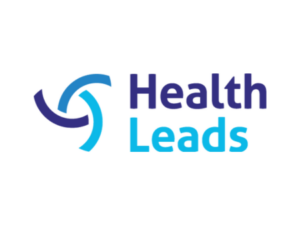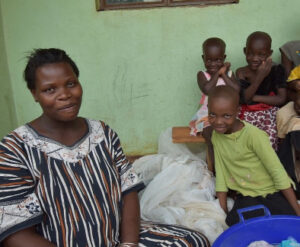The Resolution Project supports young leaders in developing their skills and launching social ventures.
George Tsiatis of Resolution Project spoke with Priyanka Shankar on April 14, 2023. Click here to read the full conversation with insights highlighted.
Priyanka Shankar: Could you please introduce yourself and tell me a little bit about your work and what problem in society you are addressing?
George Tsiatis: My name is George Tsiatis. I’m CEO and Co-founder of Resolution Project. We’re a nonprofit organization that funds, mentors, and supports young people starting social enterprises in their home communities around the world. We have fellows in 85 countries, about 600 of them who started some 400 social enterprises ranging from a couple of unicorns and a couple dozen venture backed enterprises to a few hundred community-based organizations that are creating deep and meaningful local impact.
The problem that we’ve been addressing within the context, especially of the Skoll community, has been talent sourcing, getting the pipeline of young people who are committed to impact. We support them from the idea stage and then make handoffs to other partners across this sector so that they can build and grow their ventures into the kinds of things that meaningfully drive impact and innovations in the space.
Priyanka Shankar: When you talk about impact, how do you measure it and what is success for you? Maybe you can share an example of a specific project and what impact meant there?
George Tsiatis: We provide wraparound services and support to our fellows. That includes seed funding, dedicated mentors, subject matter expertise, pro bono resources, and sequenced opportunities to build and grow their ventures. But as an organization, we don’t actually just base our success on their success or on their outcomes. We focus on something that I call our catalyst number, and that’s the number of our fellows that tell us if it weren’t for Resolution, they wouldn’t have started their social enterprise. The question for us is, are we catalyzing their journey and their work into the impact space? Now that number is at about two-thirds, so about two-thirds of our fellows tell us if it weren’t for Resolution, they wouldn’t have started their social enterprise and work in the space.
When you look at the sort of top line numbers we have, our fellows have benefited over 6 million people worldwide to date, so there’s a lot of that impact that simply would not have happened without our work together. Of course, we don’t base success just on the top line numbers and those impacts, or how one single venture specifically does. We’re really looking at how we are changing trajectories for young people who otherwise might take a path of least resistance, which isn’t the path that they wanted to take, but it was the opportunity that was presenting itself to them at that time.
Priyanka Shankar: What are some of the biggest challenges that you have gone through in this process and how do you work through them?
George Tsiatis: There’ve been a lot of challenges. I’m one of the founders and we’ve been through several iterations of our program over time. Obviously, the COVID pandemic brought a series of challenges. The majority of our program has been virtual for a long time, but our selection process was not, so turning that into a wholly virtual process took a lot of effort.
We also work across a really broad set of models. We have fellows in 85 countries and we don’t dictate to them the issues that they should focus on. They tell us what they want to focus on and we resource and support all of those teams to the best that we can. Making sure that equity is at the center of that, it’s a really challenging thing. It takes a lot of work, a lot of intentionality, a lot of energy in some cases, a lot of money, and a lot of resources. Constantly seeking to put the pieces together in the best way possible is challenging, but we’ve built a fair number of systems to help support that. We have a best in class mentorship program and we’ve been adding additional programming, an accelerator and a studio to help us meet fellow needs as they grow and scale their ventures. Of course, we’ve used partnerships as a huge way to bridge a lot of those challenges and be more present in localities for fellows.
Priyanka Shankar: As a social innovator, are there any lessons that you’ve learned through these projects that you’re dealing with?
George Tsiatis: If you know how to look at it, everything is a lesson. There are a couple of recent ones that have stuck out or really important ones that we’ve learned. When you get involved with a project at the idea stage, too much money can kill it. It’s good to start at a smaller scale because oftentimes the first idea is usually not the right one. The issue is probably the right one to focus on, but the solution probably isn’t the right one yet. Being open to that and starting with less resources to test things out before committing more resources is a really important piece. Our grants are only $5,000 to $10,000 and yet it’s enough to test out a concept in most cases.
The other piece that’s been an important lesson for us is that you cannot do anything alone, especially in this sector. Partnership is crucial. Investing in those relationships, investing time, energy, and effort into collaborating with other partners is crucial because if you try to do everything yourself, you’re going to do it worse than the folks that you work with deserve. Focusing on the areas of strength that you have, the areas where you know how to build, you know how to support, how to create, and then trusting the other folks that have expertise in other areas to come in and do their part as well. Actually, inviting them in makes a huge difference and helps you go a lot farther.
Priyanka Shankar: How does your work advance systems level change? What is on the horizon for your organization, are there new projects that you’re going to collaborate with?
George Tsiatis: Last year we piloted our accelerator and it was designed for some of our fellows whose economies and ecosystems have pretty significant missing middles. They have big gaps that entrepreneurs need to jump over to be able to achieve sustained growth. Our accelerator was designed to bring them together with funders. And the deal with funders was that they wouldn’t have to fund our organization, they would just have to show up with a commitment to fund at least one of the projects that was presented there. That upfront commitment really changed the dynamic of that space to make it one where everybody knew that everybody was there for a reason, that deals were going to get done.
It requires us as an organization to stretch our program up a bit and funders maybe stretch their programs down a bit to an area that was maybe a little less comfortable for each of us, but knowing that we were there together and that Resolution would provide wraparound support for the teams even beyond this new grant that they were going to be getting gave added comfort. We do feel that we’re creating some shifts within the system that are allowing entrepreneurs in challenging ecosystems to be able to amass the resources that they need to do their work and continue their growth trajectory, where it might otherwise stall or be stymied by the environment. We’re planning to continue that forward. We have plans for this year and we’re extending that program further ahead.
Priyanka Shankar: Is there anything else you’d like to add that I haven’t asked you already?
George Tsiatis: I’d like to emphasize that in approaching partnerships, organizations often come back to exactly what they are comfortable in and they set criteria around that. I think stepping back from those and taking stock of our shared values can open up the space for collaboration in a bigger way, in a more inventive way than just sticking to pillars or strategies or things that already exist. I’ve seen an incredible capacity for that in the Skoll community and it’s something that would benefit all of us if we tried to bring that mindset as much as possible into those conversations.
Priyanka Shankar: Thank you so much for talking with me today, this has been very insightful.
Click here to read the full conversation with insights highlighted.
Priyanka Shankar is an independent journalist currently based in Brussels. She mainly covers stories about human rights, migration and Europe’s relations with Asia. Outside a newsroom you can find her rambling along mountains or scuba diving.
* This interview has been edited and condensed.
Find other organizations supporting young leaders.







